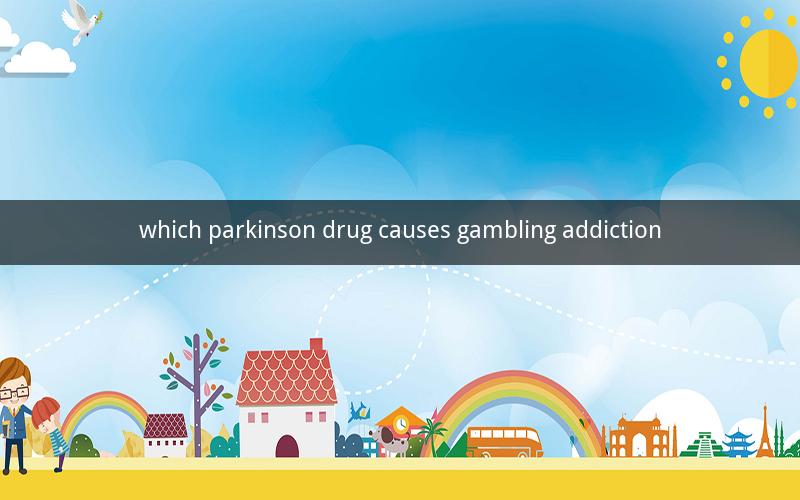
Contents
1. Introduction to Parkinson's Disease and Medications
2. Understanding Dopamine Agonists
3. The Link Between Dopamine Agonists and Gambling Addiction
4. Case Studies and Real-Life Examples
5. The Role of Dopamine Receptor Agonists in Parkinson's Disease
6. The Science Behind Dopamine and Reward Pathways
7. The Impact of Dopamine Agonists on the Brain
8. Diagnosis and Treatment of Gambling Addiction
9. Alternatives to Dopamine Agonists
10. Conclusion
1. Introduction to Parkinson's Disease and Medications
Parkinson's disease (PD) is a progressive neurological disorder that affects movement and can lead to significant disability. The disease is characterized by the loss of dopamine-producing neurons in the brain, which results in a decrease in dopamine levels. To manage the symptoms of PD, dopamine replacement therapy is commonly used, with dopamine agonists being one of the primary treatment options.
2. Understanding Dopamine Agonists
Dopamine agonists are medications that mimic the effects of dopamine in the brain. They are used to alleviate the symptoms of PD, such as tremors, stiffness, and bradykinesia. Common dopamine agonists include pramipexole, ropinirole, and apomorphine.
3. The Link Between Dopamine Agonists and Gambling Addiction
While dopamine agonists are effective in managing PD symptoms, they have been associated with a rare but serious side effect: gambling addiction. This condition, known as pathologic gambling, has been reported in patients taking dopamine agonists, particularly those with higher doses.
4. Case Studies and Real-Life Examples
Numerous case studies have documented the occurrence of gambling addiction in patients on dopamine agonists. For instance, a study published in the Journal of Neurology, Neurosurgery, and Psychiatry reported on a 72-year-old man who developed severe gambling addiction after starting treatment with pramipexole.
5. The Role of Dopamine Receptor Agonists in Parkinson's Disease
Dopamine receptor agonists work by binding to dopamine receptors in the brain, which increases dopamine activity. This can help alleviate the symptoms of PD, but it can also lead to unintended consequences, such as gambling addiction.
6. The Science Behind Dopamine and Reward Pathways
Dopamine is a neurotransmitter that plays a crucial role in the brain's reward and pleasure pathways. When dopamine levels are high, individuals may experience increased pleasure and reward from activities that they might not typically find enjoyable. This can lead to compulsive behaviors, such as gambling.
7. The Impact of Dopamine Agonists on the Brain
Dopamine agonists can alter the brain's reward system, making it more sensitive to rewards. This can lead to a heightened sense of pleasure and a desire to repeat the behavior that triggered the reward, such as gambling.
8. Diagnosis and Treatment of Gambling Addiction
Gambling addiction is a complex condition that requires a comprehensive approach to treatment. This may include cognitive-behavioral therapy, pharmacotherapy, and support groups. In some cases, discontinuing the dopamine agonist may be necessary to address the addiction.
9. Alternatives to Dopamine Agonists
For patients who develop gambling addiction while on dopamine agonists, alternative treatment options may be considered. These may include non-dopamine agonist medications, such as levodopa, or other therapies that target the symptoms of PD without the risk of gambling addiction.
10. Conclusion
While dopamine agonists are an essential treatment for Parkinson's disease, they come with potential risks, including the development of gambling addiction. It is crucial for healthcare providers to monitor patients closely for signs of addiction and to consider alternative treatment options if necessary.
Questions and Answers
1. What is the primary cause of Parkinson's disease?
- Parkinson's disease is primarily caused by the loss of dopamine-producing neurons in the brain.
2. How do dopamine agonists work in the treatment of Parkinson's disease?
- Dopamine agonists mimic the effects of dopamine in the brain, increasing dopamine activity to alleviate PD symptoms.
3. What is the most common dopamine agonist used in the treatment of Parkinson's disease?
- Pramipexole, ropinirole, and apomorphine are common dopamine agonists used in the treatment of Parkinson's disease.
4. Can dopamine agonists cause gambling addiction?
- Yes, dopamine agonists have been associated with a rare but serious side effect: gambling addiction.
5. How can gambling addiction be treated?
- Treatment for gambling addiction may include cognitive-behavioral therapy, pharmacotherapy, and support groups.
6. What are the symptoms of Parkinson's disease?
- Symptoms of Parkinson's disease include tremors, stiffness, bradykinesia, and difficulty with balance and coordination.
7. How can dopamine agonists alter the brain's reward system?
- Dopamine agonists can increase dopamine activity, making the brain's reward system more sensitive to rewards and potentially leading to compulsive behaviors.
8. What are the potential side effects of dopamine agonists?
- Potential side effects of dopamine agonists include nausea, dizziness, and hallucinations, as well as the risk of gambling addiction.
9. How can healthcare providers monitor for gambling addiction in patients on dopamine agonists?
- Healthcare providers can monitor for signs of gambling addiction by discussing potential side effects with patients and conducting regular evaluations.
10. Are there alternative treatments for Parkinson's disease that do not carry the risk of gambling addiction?
- Yes, alternative treatments for Parkinson's disease, such as levodopa, may be considered for patients who develop gambling addiction while on dopamine agonists.